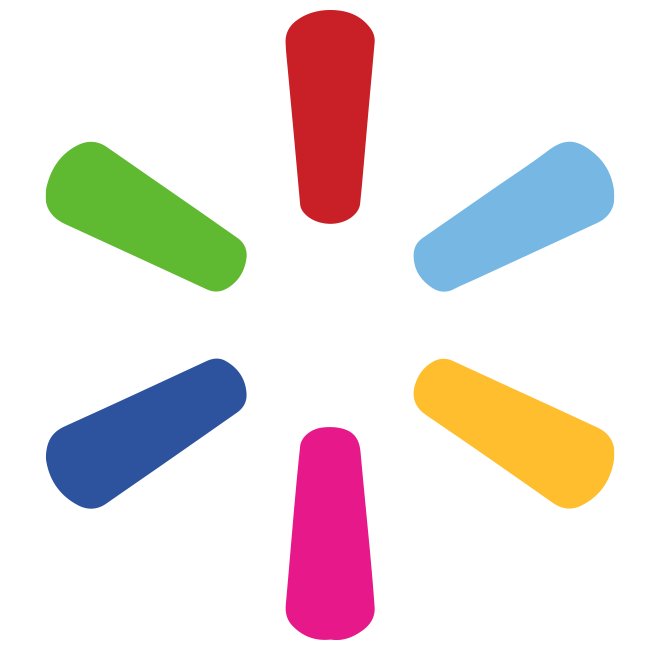Meet Walmart’s vice president of Community Engagement and Support, Keith Wyche.
Keith Wyche has decades of grocery-retail experience. Over the years, he’s also picked up valuable insights about becoming a successful and empowered team member. He’s even spent time consulting and collaborating with organizations on diversity.
As Walmart’s vice president of Community Engagement and Support, Keith gets to put his expertise to work. He’s partnering with community leaders in Chicago to rebuild the eight stores destroyed during the riots that followed George Floyd’s murder. It’s more than just rebuilding stores, though. The priority for Keith—and Walmart—is rebuilding the relationship with the community.
“It’s probably the most fulfilling job I've ever had in my life, because I wake up every day being able to make a difference,” Keith says.
Walmart World got a chance to talk with Keith about his book, his career and his role at Walmart.
You are the vice president of Community Engagement and Support at Walmart. Tell us about the role.
It was a role created after the George Floyd scenario. There was a lot of civil unrest all over the country and, in particular, in Chicago. We had eight stores in Chicago that were severely damaged during the civil unrest.
[Walmart CEO] Doug McMillon went out and met with the mayor and community leaders and pastors, and what he heard was, "Walmart, we appreciate you being here. You help us save money and live better, but we think Walmart could do a lot more to be more of a community citizen, a community player."
He said, "Okay, we're going to rebuild these stores. But we also want to rebuild the relationship." I was brought in, and I met with the leaders to make sure we were doing something “with” the community, not just “to” the community.
I see three parts to my work: economic empowerment, community partnerships and telling our story.
Economic empowerment means contracting with Black or brown contractors to rebuild the stores—hiring Black-owned contractors, bringing on local plumbers, electricians, builders. It means working with our supplier diversity team to help local small businesses understand, "Here's what you need to know to get your product on the shelves at Walmart. Here's what you need to know to get on Walmart.com.”
When I speak of community partnerships, it involves several things. First, developing relationships within the community. Relationships with local politicians, religious leaders and nonprofit organizations. It involves giving to and volunteering with local organizations that are working to positively impact the neighborhood.
Lastly, it’s about telling our story. There’s no organization more generous than Walmart, but culturally we don’t like to talk about the good we do. As a result, the community is not always aware of all the things we do to support them. By working with local media, meeting regularly with key stakeholders, and being more visible, we make sure the communities realize just how important they are to us.
It's about us truly being a store of the community. What success looks like for me in this role is, I want people to say, "Hey, that's my Walmart because my sister works there. That's my Walmart because my uncle's company helped remodel it." I want them to have an emotional attachment to Walmart, more than just a place to go shop. I want it to really be my Walmart.
What do you mean when you say diversity is not enough?
Many people—many organizations—when they think “diversity,” their first thing is recruiting. “Let's go recruit more diverse associates.”
The challenge with that is if I only focus on recruitment—and not the development or the onboarding or the career life cycle of that person—long story short, 18 months to two years later, he or she is out the door and you're back recruiting again.
Focus on inclusion first. Create that inclusive environment, and then make sure that you add equity.
Here's my simple analogy: Diversity says everyone gets invited to the party. Inclusion says everyone gets a welcome seat at the table. Equity says everyone gets the same menu of opportunity as everyone else. You must have all three.
You’ve written four business books. Your most recent is Diversity Is Not Enough: A Roadmap to Recruit, Develop and Promote Black Leaders in America—and it was nominated for an NAACP Image Award for “Outstanding Literary Work” in the Instructional Category. What motivated you to write the book?
This book was really born out of two frustrations. One was the frustration following the George Floyd murder. I remember growing up during the Civil Rights movement. I remember being a boy when Martin Luther King was assassinated. So, his murder and the riots—they did something visceral to me.
And the second thing was, there were a lot of companies saying, “We want to really do better as it pertains to Black and African-American associates, but we don't know what to do.”
This book is my way of saying, “Let me help you in this quest. If you really want to recruit, develop and promote Black talent, let me give you some best practices.”
What is a career achievement you’re most proud of?
In 2008, I was named to Morehouse College’s Martin Luther King Jr. International Board of Renaissance Leaders. The reason that recognition is so important to me is that it was not based on my career accomplishments. It was my commitment to developing and uplifting people.
Of all the recognitions I have, that one means the most, as well as this recent one from the NAACP.
Talking about race, talking about diversity, equity and inclusion—it can be very uncomfortable for a lot of people to hear. It can make the messenger sometimes unpopular. And so, to get validation from the number one civil rights organization in the world, that they saw value in that work, that's a close number two.


